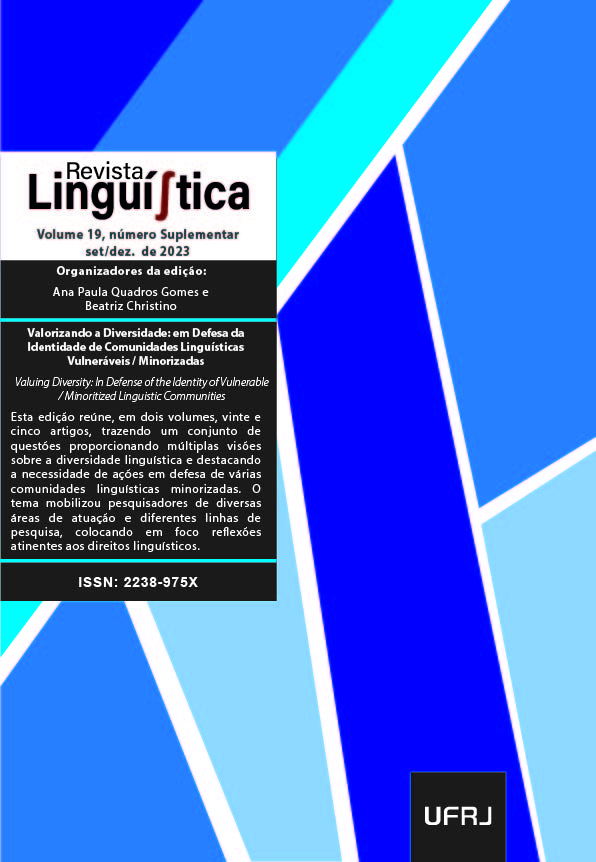Language policies and interculturality in university education for indigenous peoples: the Ecuador-Brazil case
DOI:
https://doi.org/10.31513/linguistica.2023.v19nSup.a59414Keywords:
Política multicultural e linguística. Educação superior. Inclusão.Abstract
This study analysed the theoretical foundations and policies governing access to multicultural and linguistic higher education for indigenous peoples in Ecuador and Brazil; it sought to find out how effective the educational systems are and how the institutions are applying inclusion processes. The research has a qualitative approach, with a phase characterised by bibliographical-documentary research. A theoretical framework is presented on the context of multicultural education; after a comparative analysis, an attempt was made to find out the characteristics of the management and political bases of higher education. The data was collected using instruments and techniques such as bibliographic-documentary records and criteria analysis matrices; the information was obtained from sources such as academic papers, official documents, institutional websites and other sources. It was noted that in Brazil, the Law of Guidelines and Bases of National Education-LDB has become a national curricular reference for bilingual and intercultural school education; and also in Ecuador, there is the Organic Law of Intercultural Education- LOEI, which creates spaces for dialogue between teaching and traditional knowledge. Both countries have inclusion programmes and policies for scholarships and/or quotas for indigenous or Afro-descendants.
Downloads
Published
Issue
Section
License
Copyright (c) 2024 Revista Linguí∫tica

This work is licensed under a Creative Commons Attribution-NonCommercial 4.0 International License.
Authors who publish in the Revista Linguí∫tica agree with the following terms:
The authors maintain their rights, ceding to the journal the right to first publication of the article, simultaneously submitted to a Creative Commons license permitting the sharing with third-parties of published content as long as it mentions the author and its first publication in the Revista Linguí∫tica.
Authors may enter into additional agreements for the non-exclusive distribution of their published work (for example, posting in online institutional or non-profit repositories, or book chapters) so long as they acknowledge its initial publication in the Revista Linguí∫tica.

The journal Revista Linguí∫tica is published by the Post-Graduate program in Linguistics of UFRJ and employs a Creative Commons - Attribution-NonCommercial 4.0 International (CC-BY-NC).









